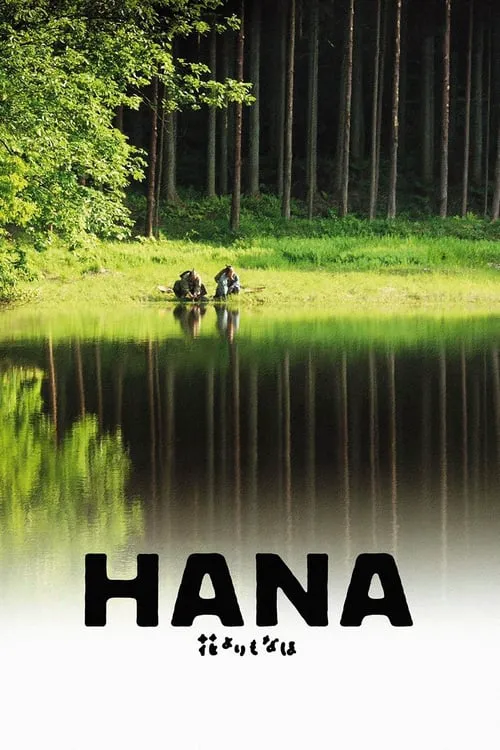Hana

Plot
In the late Edo period, amidst the lush, vibrant streets of an impoverished district in the heart of the city, a story unfolds, set against the backdrop of Japan's complex social hierarchy. It is here that Soza, a young and struggling samurai, resides, sent by his clan to avenge the untimely death of his father. The memory of his father's demise weighs heavily on Soza's conscience, driving him on his perilous quest for justice. However, this young samurai's journey is marked by a sense of disillusionment and unease. Unlike other swordsmen of his stature, Soza does not revel in the glory of his profession, nor does he take pride in his prowess with a sword. His experiences have led him to question the very code of the samurai, which dictates an unwavering commitment to duty and honor above all else. Soza has instead chosen to immerse himself in the fabric of his community, establishing a unique bond with the people he calls friends. Every day, he can be found amongst the residents of this impoverished district, imparting to the local children the humble skills of writing and reading. By doing so, he not only shares his knowledge but also connects with the innocence and purity of these young minds, earning their respect and affection. His unassuming demeanor and gentle nature have transformed Soza into a guardian figure of sorts, a beacon of hope in a world where hardship and suffering dominate. As the years pass, Soza remains steadfast in his commitment to his community. His clan, who had initially dispatched him to avenge his father's death, has been expecting a more swift and decisive outcome. However, Soza's efforts have been spent not in honing his skills, but in understanding the people and the world around him. The more time he spends in the district, the more he loses himself in the struggles and triumphs of the common folk. Meanwhile, the specter of his father's death looms in the shadows, a poignant reminder of Soza's duty to his clan. It is only a matter of time before he comes face-to-face with the perpetrator behind his father's tragic demise. This event sets Soza on an irrevocable path, compelling him to confront the ultimate test of his conviction and faith. As Soza finally sets out to avenge his father's death, he is faced with an impossible decision: Will he choose the warrior's path, honoring the traditions of his clan and succumbing to the brutal dictates of duty? Or will he defy the norms of his profession and his family's expectations, choosing instead the bittersweet peace and reconciliation that have come to define his relationship with the community he loves? The tension builds as Soza draws closer to his quarry. Every step he takes brings him ever nearer to the point of confrontation, forcing him to re-examine the values and principles that have hitherto guided his actions. With the eyes of his loved ones, the trust of his friends, and the well-being of his community hanging in the balance, Soza's choice becomes an agonizing one. Throughout his journey, he grapples with his own identity, struggling to reconcile the conflicting forces within himself: duty versus compassion, discipline versus empathy, and honor versus the yearning for peace. His inner turmoil serves as a poignant reminder that true strength lies not in an unyielding adherence to a code or creed, but in the capacity to grow, adapt, and learn from the complexities of life itself. As Soza faces off against the perpetrator, his future hangs precariously in the balance. Will he find the courage to defy his clan's expectations and walk a path that diverges from the conventional way of the samurai? Or will he yield to the pressures of his family's legacy, forsaking the love and understanding he has shared with the people of the district? In a poignant climax, where honor and loyalty are weighed against compassion and peace, Soza's heart must choose between two worlds: the one that defined his forefathers, and the life he has built in quiet companionship with the community.
Reviews
Recommendations




